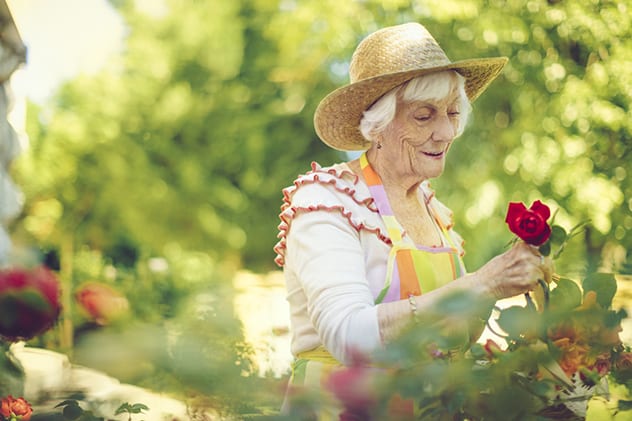As we continue to be faced with uncertainty amid the coronavirus pandemic, being kind and checking in on our loved ones more important now than ever before.
And with Melbourne back under a strict lockdown, we can’t forget that social connections remain especially important for our older generation. The elderly are not only more vulnerable to the effects of the virus but are likely to be negatively impacted by self-isolation and feelings of loneliness.
How can we care for our elderly without putting them at risk? While we should continue to follow all the guidelines issued by government, there are also a few tips below that can help in the day-to-day care of your elderly loved ones.
1. Have a plan
The most important step that you can take for yourself and your loved one is to have a plan in the event that you or they contract the virus and need to self-isolate. This plan should ensure that if you are unable to care for your elderly parent or grandparent, friend or neighbour, that there is someone else who can take your place in providing them with the support that they need. Reach out to friends and neighbours if you don’t have a wide circle of relatives to call upon.
As we know, the virus can have severe outcomes for those over 70. This means that it is essential that there is already a plan in place to ensure that your elderly loved one can access the medical help that they need quickly. For many older people living in villages such as ours at Metlifecare, medical facilities may be available on site and access to medical professionals who can assist swiftly should the need arise. For those living on their own, it’s doubly important to be clear about how you as a family will respond.
2. Check-in daily
Perhaps one of the most crucial things we can do to help our loved ones through this trying time is to check in with them every day. Younger family members could start a roster ensuring daily calls or video calls with their elderly loved one to ensure they feel connected, cared for and offer the opportunity for them to reach out for any help or assistance that they may need.
Remember some of our older generation may not be connected to the online world so ensuring there is a clear line of communication is essential to maintain a connection. If you have additional smart devices in your home, disinfect these and then share these with your elderly loved ones to help keep them in contact with you.
3. Offer assistance
Whether it’s doing the shop, collecting prescriptions, cooking and preparing meals, walking the dog, managing money and paying bills, there may be a number of things you can help your older loved one with.
With the goal to remove their chances of exposure to the virus, any task that would put them in contact with other people should be avoided and taken on by someone who is more physically fit and able.
Keep in mind when returning from these errands, it is still crucial to maintain physical distancing, disinfect any items that may have had human contact and continue practising the highest standard of hygiene as you can.
If your loved one is living in a retirement village, many of these villages have staff dedicated to helping residents with errands and shopping during this time. Don’t be shy to check in with the village and see what their plan is in that regard.
4. Give them purpose
For some of our older family members, the trip to the supermarket might provide them with a sense of accomplishment so you want to be careful that by eliminating chances of exposure to the virus you’re not taking away their reason to get up in the morning.
Some things they can consider doing;
- Exchanging letters with younger family members
- Gardening – which can significantly reduce depression
- Writing – a book or a short story, or maybe now is the time to pen that memoir they keep talking about!
- Volunteering from the comfort of their own home. Service providers like Lifeline are desperate for caring volunteers with a phone connection at this time
- Passing on a skill (via video call or the phone) or learning a new skill
By creating a daily task for your elderly loved one, you’re not only helping to reduce negative feelings such as depression, but many studies have proven that seniors with a sense of purpose in life are less likely to develop diseases such as Alzheimer’s or dementia as well as reducing their stress levels which can lead to dangerous inflammation.
5. Help them stay active
Physical fitness is always important, particularly as we get older. If we’re not able to leave our homes to join in on our regular activity, we need to ensure that our physical wellbeing is not compromised. We recommend helping your older family members with a daily activity plan that keeps them moving within their homes or gardens.
Older residents who exercise often tend to have improved immune and digestive functioning, better blood pressure and bone density, and a lower risk of many diseases. It also enhances mobility, flexibility, and balance. These are important things to consider during a time in which it will become difficult for them to maintain mobility by doing outside walks and their regular active group or individual activities.
While we’re still encouraged to get out and walk, this is not always possible for some and we need a home plan to keep their bodies moving. Follow the Metlifecare Facebook page over the coming weeks as we’ll share exercises that residents, friends and families can do at home to get them up and about.

6. Keep their minds busy
Self-isolation can be boring and while most of us are tech savvy many of the older generation may not be and we need to ensure that we’re keeping their minds active too.
Activities to keep the brain active:
- Art therapy – drawing, painting, colouring, collage
- Reading and writing
- Learning a language
- Sudoku or chess (if they haven’t played it regularly before)
- Cooking with new recipes
- Puzzles
- Learning how to play an instrument
- Online games or apps (for the more tech savvy)
- Doing the daily quizzes – available on many online platforms such as mindfood.com
We need to continue challenging the brain with mental exercise to activate processes that help maintain individual brain cells and stimulate communication among them. Pick up some adult colouring-in books and pencils from the supermarket. Perhaps engage in a daily game of online chess with your grandad or grandma or see who can learn the most of a foreign language over the next four weeks. Not only will you keep their brains active, but you’ll pick up a new language to boot!







